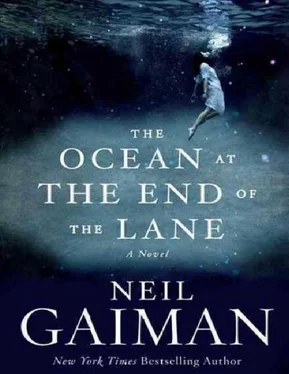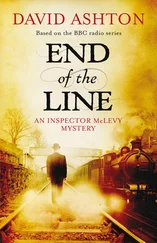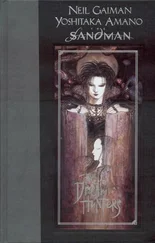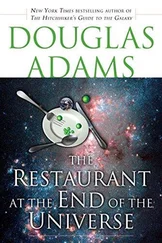“What does that mean?”
“When you were born—when all of her grandchildren were born—your grandma bought you a Premium Bond. And when the number gets chosen you can win thousands of pounds.”
“Did I win thousands of pounds?”
“No.” She looked at the slip of paper. “You’ve won twenty-five pounds.”
I was sad not to have won thousands of pounds (I already knew what I would buy with it. I would buy a place to go and be alone, like a Batcave, with a hidden entrance), but I was delighted to be in possession of a fortune beyond my previous imaginings. Twenty-five pounds. I could buy four little blackjack or fruit salad sweets for a penny: they were a farthing each, although there were no more farthings. Twenty-five pounds, at 240 pennies to the pound and four sweets to the penny, was . . . more sweets than I could easily imagine.
“I’ll put it in your post office account,” said my mother, crushing my dreams.
I did not have any more sweets than I had had that morning. Even so, I was rich. Twenty-five pounds richer than I had been moments before. I had never won anything, ever.
Imade her show me the piece of paper with my name on it again, before she put it into her handbag.
That was Monday morning. In the afternoon the ancient Mr. Wollery, who came in on Monday and Thursday afternoons to do some gardening (Mrs. Wollery, his equally ancient wife, who wore galoshes, huge semi-transparent overshoes, would come in on Wednesday afternoons and clean), was digging in the vegetable garden and dug up a bottle filled with pennies and halfpennies and threepenny bits and even farthings. None of the coins was dated later than 1937, and I spent the afternoon polishing them with brown sauce and vinegar, to make them shine.
My mother put the bottle of old coins on the mantelpiece of the dining room, and said that she
expected that a coin collector might pay several pounds for them.
I went to bed that night happy and excited. I was rich. Buried treasure had been discovered. The world was a good place.
I don’t remember how the dreams started. But that’s the way of dreams, isn’t it? I know that I was in school, and having a bad day, hiding from the kinds of kids who hit me and called me names, but they found me anyway, deep in the rhododendron thicket behind the school, and I knew it must be a dream (but in the dream I didn’t know this, it was real and it was true) because my grandfather was with them, and his friends, old men with gray skin and hacking coughs. They held sharp pencils, the kind that drew blood when you were jabbed with them I ran from them, but they were faster than I was, the old men and the big boys, and, in the boys’ toilets, where I had hidden in a cubicle, they caught up with me. They held me down, forced my mouth wide open.
My grandfather (but it was not my grandfather: it was really a waxwork of my grandfather, intent on selling me to anatomy) held something sharp and glittering, and he began pushing it into my mouth with his stubby fingers. It was hard and sharp and familiar, and it made me gag and choke. My mouth filled with a metallic taste.
They were looking at me with mean, triumphant eyes, all the people in the boys’ toilets, and I tried
not to choke on the thing in my throat, determined not to give them that satisfaction.
I woke and I was choking.
I could not breathe. There was something in my throat, hard and sharp and stopping me from breathing or from crying out. I began to cough as I woke, tears streaming down my cheeks, nose running.
I pushed my fingers as deeply as I could into my mouth, desperate and panicked and determined. With the tip of my forefinger I felt the edge of something hard. I put the middle finger on the other side of it, choking myself, clamping the thing between them, and I pulled whatever it was out of my throat.
I gasped for breath, and then I half-vomited onto my bedsheets, threw up a clear drool flecked with blood, from where the thing had cut my throat as I had pulled it out.
I did not look at the thing. It was tight in my hand, slimy with my saliva and my phlegm I did not want to look at it. I did not want it to exist, the bridge between my dream and the waking world.
I ran down the hallway to the bathroom, down at the far end of the house. I washed my mouth out, drank directly from the cold tap, spat red into the white sink. Only when I’d done that did I sit on the side of the white bathtub and open my hand. I was scared.
But what was in my hand—what had been in my throat—wasn’t scary. It was only a coin: a silver shilling.
I went back to the bedroom I dressed myself, cleaned the vomit from my sheets as best I could with a damp face-flannel. I hoped that the sheets would dry before I had to sleep in the bed that night. Then I went downstairs.
I wanted to tell someone about the shilling, but I did not know who to tell. I knew enough about adults to know that if I did tell them what had happened, I would not be believed. Adults rarely seemed to believe me when I told the truth anyway. Why would they believe me about something so unlikely?
My sister was playing in the back garden with some of her friends. She ran over to me angrily when she saw me. She said, “I hate you. I’m telling Mummy and Daddy when they come home.” “What?”
“You know,” she said. “I know it was you.”
“What was me?”
“Throwing coins at me. At all of us. From the bushes. That was just nasty.”
“But I didn’t.”
“It hurt.”
She went back to her friends, and they all glared at me. My throat felt painful and ragged.
I walked down the drive. I don’t know where I was thinking of going—I just didn’t want to be there any longer.
Lettie Hempstock was standing at the bottom of the drive, beneath the chestnut trees. She looked as if she had been waiting for a hundred years and could wait for another hundred. She wore a white dress, but the light coming through the chestnut’s young spring leaves stained it green.
I said, “Hello.”
She said, “You were having bad dreams, weren’t you?”
I took the shilling out of my pocket and showed it to her. “I was choking on it,” I told her. “When I woke up. But I don’t know how it got into my mouth. If someone had put it into my mouth, I would have woken up. It was just in there, when I woke.”
“Yes,” she said.
“My sister says I threw coins at them from the bushes, but I didn’t.”
“No,” she agreed. “You didn’t.”
I said, “Lettie? What’s happening?”
“Oh,” she said, as if it was obvious. “Someone’s just trying to give people money, that’s all. But it’s doing it very badly, and it’s stirring things up around here that should be asleep. And that’s not
good.”
“Is it something to do with the man who died?”
“Something to do with him. Yes.”
“Is he doing this?”
She shook her head. Then she said, “Have you had breakfast?”
I shook my head.
“Well then,” she said. “Come on.”
We walked down the lane together. There were a few houses down the lane, here and there, back then, and she pointed to them as we went past. “In that house,” said Lettie Hempstock, “a mar dreamed of being sold and of being turned into money. Now he’s started seeing things in mirrors.” “What kinds of things?”
“Himself. But with fingers poking out of his eye sockets. And things coming out of his mouth. Like crab claws.”
I thought about people with crab legs coming out of their mouths, in mirrors. “Why did I find a shilling in my throat?”
“He wanted people to have money.”
“The opal miner? Who died in the car?”
“Yes. Sort of. Not exactly. He started this all off, like someone lighting a fuse on a firework. His death lit the touchpaper. The thing that’s exploding right now, that isn’t him That’s somebody else. Something else.”
Читать дальше












